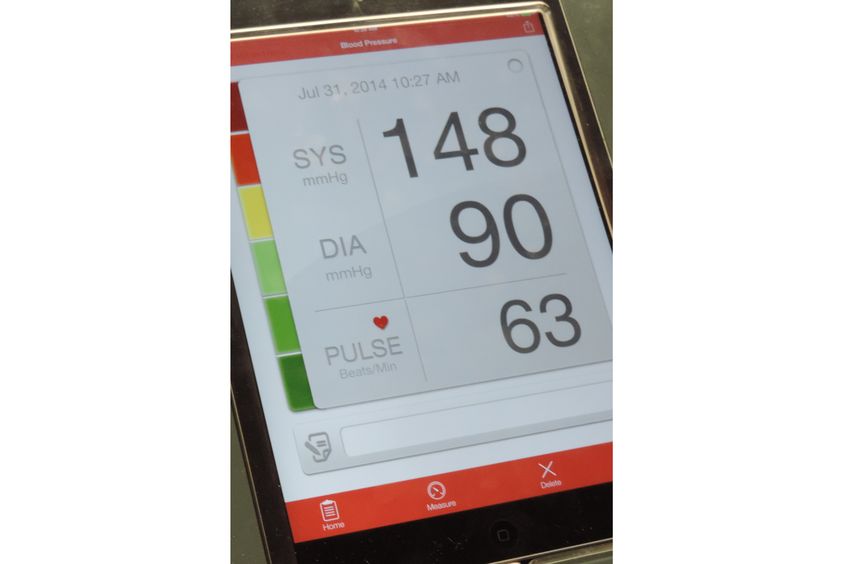
Dallas, Nov. 17, 2025 — Chronic pain in adults may significantly increase their risk of developing high blood pressure, according to a new study published in Hypertension, a journal of the American Heart Association. The research highlights the role of pain management in preventing high blood pressure, a major risk factor for cardiovascular disease and mortality.
An analysis of health data from over 200,000 adults in the United States revealed that individuals experiencing chronic pain throughout their bodies were more likely to develop high blood pressure compared to those reporting no pain, short-term pain, or pain limited to specific areas. The study also found that depression and inflammation partly explained this association.
Understanding the Link Between Pain and Hypertension
The study, led by Dr. Jill Pell, C.B.E., the Henry Mechan Professor of Public Health at the University of Glasgow, examined the extent to which chronic pain contributes to high blood pressure. “The more widespread their pain, the higher their risk of developing high blood pressure,” Pell explained. She noted that chronic pain often leads to depression, which in turn increases the likelihood of developing high blood pressure.
High blood pressure, or hypertension, occurs when the force of blood against artery walls is too high, increasing the risk of heart attack and stroke. It affects nearly half of all adults in the U.S., according to the 2025 joint guidelines from the American Heart Association and the American College of Cardiology.
The Study’s Findings and Methodology
The research utilized data from the UK Biobank, a large-scale study involving more than 500,000 participants aged 40-69 from England, Scotland, and Wales. This analysis focused on 206,963 adults, with an average age of 54, of whom 61.7% were women and 96.7% were white.
Participants completed a baseline questionnaire about their pain experiences and provided blood samples to measure inflammation through C-reactive protein (CRP) levels. Depression was assessed via a questionnaire on mood and activity levels.
After an average follow-up of 13.5 years, nearly 10% of participants developed high blood pressure. Those with chronic widespread pain had a 75% increased risk, while short-term pain was linked to a 10% higher risk, and chronic localized pain to a 20% higher risk.
Specific pain sites also correlated with varying risks: chronic abdominal pain increased the risk by 43%, chronic headaches by 22%, neck/shoulder pain by 19%, hip pain by 17%, and back pain by 16%.
Implications for Healthcare and Future Research
The study underscores the importance of recognizing and managing chronic pain to mitigate the risk of high blood pressure. “When providing care for people with pain, healthcare workers need to be aware that they are at higher risk of developing high blood pressure, either directly or via depression,” Pell stated.
Dr. Daniel W. Jones, chair of the 2025 American Heart Association/American College of Cardiology High Blood Pressure Guideline, emphasized the need for further research. “This study adds to our understanding of the relationship between chronic pain and blood pressure. Future randomized controlled trials should explore pain management strategies and their effects on blood pressure,” he suggested.
Jones also highlighted the potential impact of Nonsteroidal Anti-Inflammatory Drugs (NSAIDs) like ibuprofen, which may increase blood pressure, on patients with chronic pain.
Limitations and Considerations
The study’s findings may not be generalizable to all populations, as participants were predominantly middle-aged, white adults of British origin. Additionally, pain levels were self-reported, and the study relied on clinical diagnostic coding and limited blood pressure measurements.
The researchers adjusted for various factors associated with both pain and high blood pressure, such as smoking status, alcohol consumption, physical activity, and dietary habits. Despite these limitations, the study provides valuable insights into the complex interplay between chronic pain, depression, inflammation, and hypertension.
As the healthcare community continues to grapple with the widespread impact of chronic pain, this research highlights the need for integrated approaches that consider both physical and mental health to prevent and manage high blood pressure effectively.







